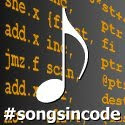In a programming game players write a program to complete a specific task, usually to wipe out all opponents. The contest takes place between either programs in the memory of a virtual computer or robots in an arena.
Darwin
In August 1961, Douglas McIlroy, Robert Morris and Victor Vyssotsky invented Darwin and the programming game genre. Programs written using IBM 7090 machine code competed to destroy all opponents and be the most prolific replicator. An Umpire provided three functions to probe memory for an opponent, to claim memory or kill an opponent.
RobotWar
RobotWar was written in the 1970s by Silas Warner for the PLATO computer system and published commercially for the Apple II by MUSE Software in 1981. Programs written in a proprietary high level language control robots which battle to eliminate all opponents in a virtual arena. In the early 1980s a society was formed and an annual tournament organised by Computer Gaming World.
Color Robot Battle
The Image Producers released Color Robot Battle in 1981 for the TRS-80 Color Computer. The game was played by writing programs in a simple hybrid of BASIC and Logo to control a battle robot. Programs faced each other in a one-on-one battle with the last robot standing being declared winner.
Core War
Alexander Dewdney described Core War in the May 1984 issue of Scientific American, introducing programming games to a wide audience for the first time. Core War became popular overnight. A society was formed, a newsletter published and regular tournaments held. Core War is played between assembly languages programs in the memory of a virtual computer. Each program attempts to eradicate all opponents. Core War can be played by email at KOTH.org or KOTH@SAL.
DROID
Inspired by RobotWar, DROID was developed at Reichhold Chemicals as a teaching aid in December 1984. Programs to control robots are written in the D-code assembly language and attempt to exterminate all adversaries in the virtual arena. DROID can be played by Telnet on the Empire HPe3000 server.
CROBOTS
Tom Poindexter published CROBOTS as shareware in December 1985 after being inspired by RobotWar. A subset of C is used to control battle robots. As usual, the aim of the game is to destroy all opponents in a virtual arena. A king of the hill tournament is organised by Maurizio Camangi.
P-Robots
In 1988 David Malmberg released P-Robots, a robot battle game based on a subset of the Pascal programming language and inspired by CROBOTS. Later versions introduced a variety of optional extras for robots, teams and obstacles.
OMEGA
OMEGA is a programming game written by Stuart Marks and published by Origin Systems in 1989. The object of the game is to program a tank to defeat a series of increasingly more powerful enemies. Each opponent defeated unlocks a higher security clearance and increased budget.
Unfortunately there's very little information about some of these games online. Do you remember playing any of the above? Which is your favourite programming game and why?
 #songsincode are small pseudo-programs which display a song title or part of the lyrics. The more refined examples use conditional code and control stuctures to define the song.
#songsincode are small pseudo-programs which display a song title or part of the lyrics. The more refined examples use conditional code and control stuctures to define the song.